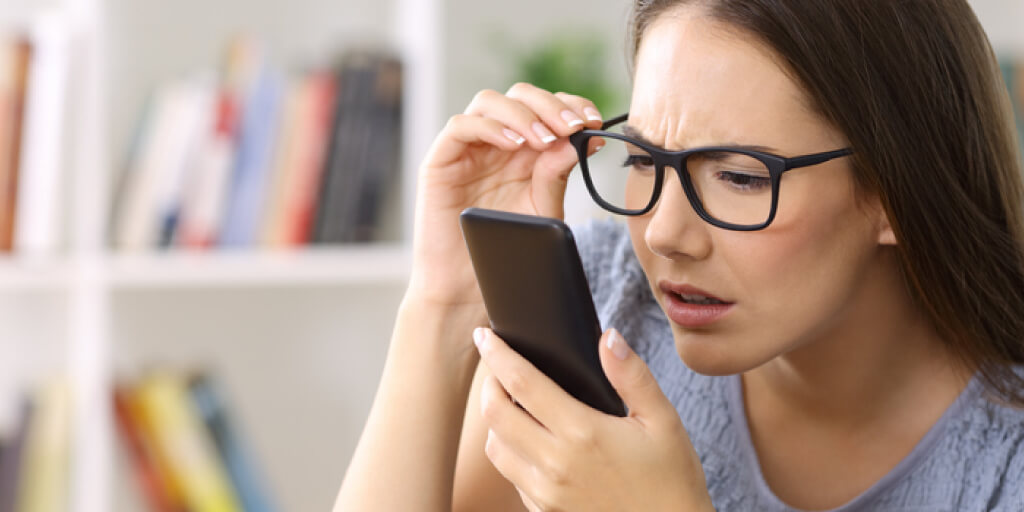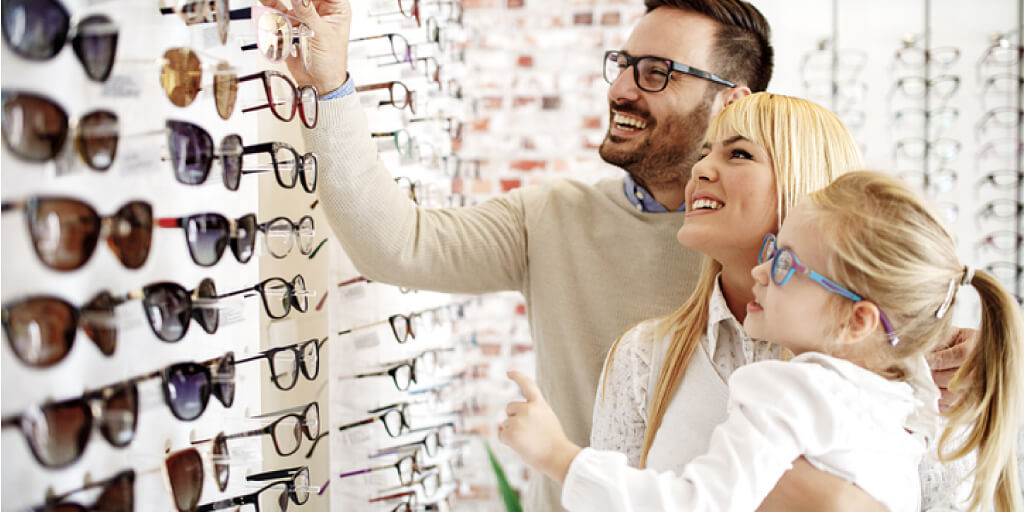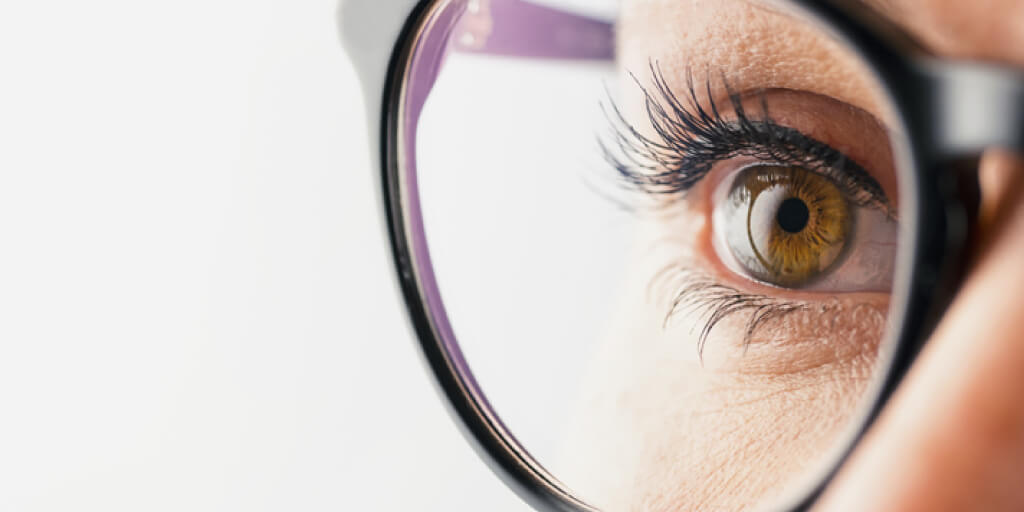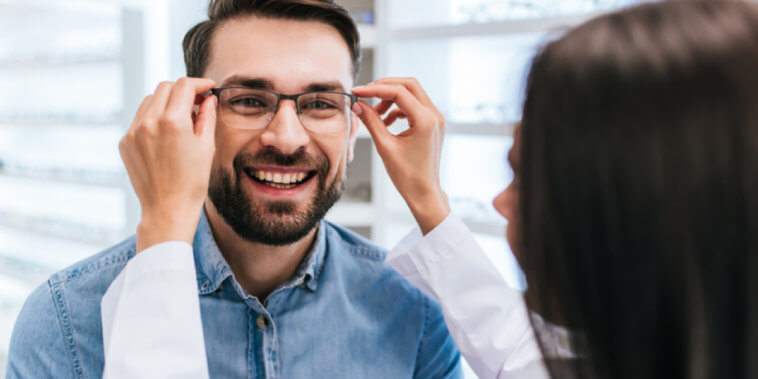Table of Contents
Great eyesight is the dream of many people who have suffered from bad eyesight. A life without glasses or contacts would be a dream, right?
While some experts believe in natural eyesight improvement, some do not. However, are there some practical ways to boost your eyesight as you age?
Let’s take a look at all of the scientific proof and possible solutions.

Can Your Eyesight Get Better?
The most basic and common eyesight problems are myopia and hyperopia. These two conditions tend to appear in younger age but many more eyesight issues arise as people grow older.
It’s important to know that nearsightedness or farsightedness are not diseases. They can’t really heal. They both represent a different eye deformation.
Farsightedness means that your sight is shorter than normal which causes the images to be focused behind the retina, making near objects blurry. This is a common issue and it’s often hereditary.
Nearsightedness is a refractive error which makes close objects appear clearly, but distant objects blurry. The eyeball of the person with myopia is long from front to back which causes the light rays to focus in front of retina instead of directly on the retina which is what makes distant objects blurry.
If someone has hyperopia as a child or as a teenager, they will likely grow out of it as their eyeball grows longer along with the rest of the body. However, myopia cannot be fixed in the same way since the body and the eyeball continues growing which causes the vision to get worse. It usually stops getting worse around the age of 21 when the growing stops but it can continue on well into adulthood.
So, correcting hyperopia ‘naturally’ is possible while fixing myopia isn’t.
However, it’s more than possible to get a laser surgery, depending on the severity of vision problems. This laser surgery reshapes your cornea so that the image is focused properly on the retina.
In the meantime, glasses are a great option. If you don’t like wearing glasses, then you could choose contact lenses.
Some experts say that natural methods like eye exercise, eating well and resting your eyes often can help you reduce your vision problem, but these haven’t been scientifically confirmed or replicated. Some people get the improvement while some don’t.
There is no harm in testing these techniques, however. At the very least, they will keep your eye well-rested. But, don’t bank on these solutions too much in the sense of reducing your issues.

Top 7 Ways You’re Ruining Your Eyesight
Your vision isn’t something you can choose. Most vision problems are inherited and while some people might end up with eagle eyes, some people will end up with vision that desperately needs Lasik. Changes in your vision are often out of your control and they will worsen with age. But, this is not to say that you can’t slow the worsening down. Simple habits and things we do every day are responsible for ruining our eyesight as well.
Here are some of those things you can stop doing right away to keep your eyes healthy:
Neglecting to wear sunglasses
Exposure to the UV rays can damage your retina even further and put you in risk for cataracts, abnormal growths and so on. So, you need to wear UV blocking sunglasses when you are outside so that you can avoid damage. Remember to wear this in the snow as well – it might be even more important because snow glow can be really damaging to the eyes. If you wear contacts, choose ones with UV protection. You can do the same with your glasses or look into color-transitioning lenses.
Using old contacts
This may seem harmless but you are actually increasing your chances of infection. You shouldn’t do these things – sleeping with contacts, sharing contacts with other people or not switching the contact case every few weeks. Don’t wear contact lenses for longer than recommended; you may save a few bucks but it will cost you later!
Rubbing your eyes
This may be a reflex or soothing habit but it can be really damaging in the long run. This way, you are transferring germs and bacteria into your eyes and this can cause pink eye. It can also cause corneal damage. Some of the conditions you can get include keratoconus, breaking of the fragile vessels around the eyes and so on. Rubbing your eyes when you feel something in them can also put the debris in further. It’s better to blink quickly to get it to go away. You can also gently blink in clean, filtered water to dislodge debris or dust from your eye.
Wearing contacts in the pool or in the shower
Wearing contacts in the water can allow bacteria into the eye. It can even cause some serious issues if acanthamoebam which causes rare infections, to get in your eye. It can cause serious infection or permanent blindness.
Using bad eye makeup
Throwing away makeup may be painful for you but it can save your eyes. Expired makeup can cause infections and many other vision issues. Eye makeup should have an expiration date on the packaging, usually depicted as a container with an amount of time within. Err on the safe side and throw away your makeup as soon as you notice that it has changed or when it reaches that date. Pay attention to ingredients and brand integrity; purchase good quality makeup and make sure to research the ingredients.
Smoking
Smoking can cause cataracts and macular degeneration which can affect your vision. There is a part of the retina that starts to deteriorate when you smoke and your vision worsens with it. This is one of the biggest causes of eyesight loss and deterioration.
Staring at your phone
Your eyes get tired when you stare at your phone all the time. It’s a small text on a small screen – no matter how big your phone is. Your blink rate decreases, your eyes get dry and you get blurry vision. So, for every 20 minutes of screen time, you should get just as much looking around so that your eyes can remain healthy. Turn on a blue light filter to help reduce strain and try to keep your phone as far away from your face as you can.

Can Your Vision Improve with Age?
Vision can, technically, improve with age.
The condition known as hyperopia or farsightedness traditionally improves with age. For example, if a teenager or a child get hyperopia, it can improve as the body grows. Farsightedness means that your cornea is shorter than it’s supposed to be and as you grow it gets longer so it fixes itself.
However, other eye conditions don’t improve with age. There were some reports of myopia improving slightly after the age of 21.
This change has not been scientifically confirmed, though.
Eyesight can improve with Lasik surgery. You can also maintain your eyesight by eating healthy food, resting your eyes enough, getting enough sleep and having a healthy lifestyle overall.

How Can You Tell if Your Eyesight is Suffering
If you are wearing glasses or have had vision correction, you are probably thinking about how to improve your eyesight and which changes mean that you need an eye exam. These changes should never be overlooked and you should always pay close attention to your eyes whether you had eye problems before or not.
Testing your eyes will help you keep track of your vision. Early diagnosis can help you fix any eye conditions on time.
Here are some signs that you need to test your eyes:
Notice any changes in night vision
Check your night vision by making sure that you can see clearly when driving during the night or when driving. This could be one of the first signs that you need to get your eyes checked, especially if you notice it when driving during the night. If you see halos around the lights, have trouble seeing a difference between objects and so on, you should go to an optometrist.
Health conditions which can affect the eyes
Your health in general has the power to affect your eyes. If you were diagnosed with lupus, diabetes, thyroid condition or any other problem, this means that you need to check your eyes as well.
Check for eye infection
Eye exams can also identify health conditions in your eyes that are not only vision changes. Some eye infections will clear up on their own but some can be contagious and cause some permanent damage. If you have any itchiness, redness, discharge or anything similar, you need to call your eye doctor.
If you have headaches or migraines
These can be a result of muscle tension or stress in your eyes as well as a warning sign of a more serious eye issue. If you have frequent headaches, you should see your eye doctor, especially if you see auras, spots and so on.
Vision disruptions
These can also mean that you need an eye exam – even without the headaches. If you see black spots, auras, flashes of light and so on, this can mean that you should go to the doctor.
Eye tiredness
Eye strain can mean that you need a doctor as well. Of course, this can happen if you are reading a lot or spending a lot of time in front of a screen. But it can also happen for no reason at all. If your eye hurts if you move it in a specific way, you should get an eye exam.
If you are sensitive to light
A strong sensitivity to light can mean that you have an eye infection, corneal abrasion, central nervous system damage and so on. Check this as soon as possible.
Difficulty focusing
Eye conditions can manifest as focusing issues – if you are unable to focus on a certain object in front of you. See a doctor in this case.
Keep in mind that you should have eye exams every 6 months to a year to make sure that your eyes are healthy and safe.

Best Foods for Better Eyesight
Minerals and vitamins are crucial for good eyesight. Here are some foods you should eat to maintain your eyesight:
- Fish
- Nuts and legumes
- Seeds
- Citrus fruits
- Carrots
- Sweet potatoes
- Beef
- Eggs
Were you surprised by any of these eyesight tips? Feel free to share your thoughts down below!
Sources:
https://www.self.com/story/everyday-habits-that-are-hurting-your-eyesight
https://www.webmd.com/eye-health/features/natural-vision-correction-does-it-work
https://allabouteyes.com/need-eye-exam-8-signs-time-eyes-tested/




Comments
Loading…